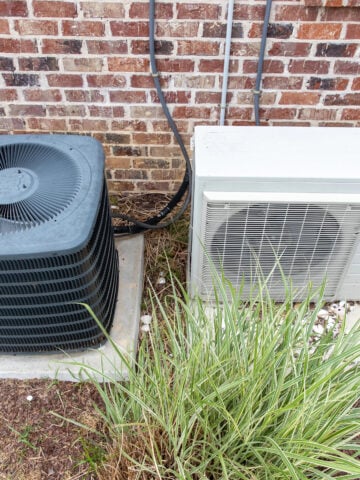
Purchasing a home is a serious long-term investment and a significant milestone in many people’s lives. Considering the importance of this financial decision, it’s crucial to approach the process with careful consideration and after conducting thorough research.
Disclaimer: this post may contain affiliate links, and every purchase made through these links will give me a small commission (at absolutely no extra cost for you!) AS AN AMAZON ASSOCIATE AND REWARDSTYLE MEMBER, I EARN FROM QUALIFYING PURCHASES. See Privacy Policy for additional info.
In this guide, we’ve explored key aspects to consider when buying a home, providing you with valuable insight to aid your decision-making process. From pricing to location, mortgage, design features, and more, here are six things to consider when buying a home.
6 Things To Consider When Buying A Home:
1. Think Long Term
Buying a house is one of the biggest financial commitments you’ll be making in your lifetime, and this decision is certainly not one for the short term. Before you seal the deal on what you may think is your dream home, consider your long-term plans.
Is this property going to fit in the life you envision for the future, not just the one you have today? Do you have any significant life changes planned, such as getting married, having children, or changing jobs?
If you aren’t sure this will be the house for you in a few years, keep looking. You don’t want to settle down for a couple of years only to realize you’ve outgrown the place and need to start browsing the market again!
2. Budget and Financing
Securing financing and establishing a budget are crucial steps in the home-buying process. Consider your income, expenses, and any existing debts to determine how much you can afford, and connect with financial institutions to understand your loan options and obtain pre-approval.
You can also consider asking your mortgage broker to help you understand what factors are in play, and make sure you buy a house you can truly afford, not one that mortgage companies think you can.
Perhaps the most important cost you’ll have to think about is the downpayment. The good news is that according to the Mortgage Bankers Association, the average downpayment for first-time home buyers in 2020 was 7.9%, which is a lot less than many people estimate.
In addition, you might get confused between buying a premade home or building one from the ground up. Westpac's article comparing building to buying a house can be a good place to start your research.
3. Property Size and Features
When evaluating the size of your property, consider your present and future needs.
Determine how much space you need, the number of bedrooms and bathrooms required, as well as any special amenities or features that are important to you. For example, if you’ve always dreamed of building your own house garden, ensure the property has plenty of sunny landscaping so you can make this vision come to life!
Importantly, remember to strike a balance between your immediate needs and future requirements. Think about who’s living in your home now and who will be in the future — if there’s a potential of you having children, finding roommates, or taking in relatives, factor that into your bedroom and bathroom count.
There are also important property features you must consider, such as its age, condition, and whether you’d like an old, vintage house or a modern one with the latest fixtures. Think long and hard about exactly what kind of property you’d like so you don’t start hunting without a clear idea of your non-negotiables.
4. Look Beyond The Purchase Price
The purchase price is just one part of the cost of owning a home. Make sure to consider all costs associated with your potential new home — such as insurance costs, homeowners association fees, and real estate taxes.
And it’s not just initial repairs and home improvements that cost money — long-term maintenance is also a significant investment. If you’re installing fancy heating and cooling systems, outbuildings, or swimming pools, ensure you account for the extra upkeep.
In the long run, a cheap home with expensive taxes may end up costing you more than a home with a higher purchase price and lower taxes, so weigh your options carefully before sealing the deal.
5. Homeowners Association (HOA) and Fees
If you're considering buying a property in a planned community or condominium complex, determine whether a homeowner's association (HOA) is involved. An HOA fee is a regular fee, typically charged monthly or quarterly, assessed by the homeowner’s association to pay for the services it provides. The fees generally cover maintenance, community amenities, or other shared expenses.
Before purchasing the property, make sure to understand the HOA rules, regulations, and any associated fees, and budget that into your overall cost.
6. Future Prospects
A house is an asset. You’ve probably heard this a lot before, and we can’t stress how true this is!
Even if you don’t plan to sell the property in the near future, it’s still wise to purchase a home with a high resale value. Keep an eye on market trends and assess how the area’s real estate market has performed in recent years.
Also, research any future development or zoning changes that might affect the property or the surrounding areas. Reach out to local government authorities to gather information about future road extensions, industry projects, or zoning restrictions. This is vital information that can help you anticipate changes in your neighborhood and their impact on your quality of life and your property’s future value.

Final Thoughts
Buying a home is an important decision that requires careful research, planning, and legwork on your part. Make sure to evaluate important aspects such as location, budget, property features, inspections, market trends, HOA regulations, and future developments to make an informed choice about your future home.
If still in doubt, we recommend reaching out to a realtor. A savvy realtor can work to protect your interests and guide you through the buying process, from arranging home inspections to negotiating a price, drawing up contracts, and more. Good luck!









Leave a Reply